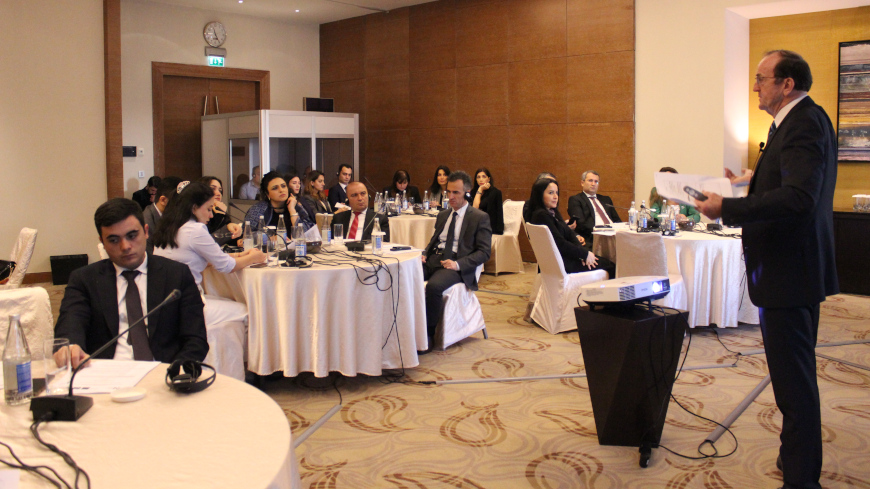Targeted financial sanctions are a key tool to prevent and suppress the financing of terrorism and proliferation. Azerbaijan has enhanced their efforts in this area, by adopting a new law on targeted financial sanctions and developing guidelines for its effective implementation.
With the aim to support national efforts to successfully address terrorism threats and improve enforcement against terrorism financing and proliferation financing, a two-day training was organised for representatives of law enforcement agencies and judiciary, as well as financial intelligence and central bank practitioners.
The training shared good practices for implementation of targeted financial sanctions requirements related to terrorism and financing of weapons of mass destruction. It also allowed to focus on a number of important aspects which included the investigation of proliferation financing and related red flag indicators, establishment of a domestic sanction list, as well as procedures for listing – how to include individuals and entities in international sanctions list, namely in the United Nations Security Council’s sanctions list.
The workshop also examined effective national coordination mechanisms and interagency cooperation with a domestic focus on tackling the financing of terrorism and the proliferation of weapons of mass destruction. Furthermore, it provided an open forum for discussion of challenges to supervision and monitoring of enforcement of international sanctions concerning the financing of terrorism and proliferation.
This event is part of the European Union and the Council of Europe joint programme “Partnership for Good Governance”, co-funded by the European Union and the Council of Europe, and implemented by the Council of Europe, in the framework of the project on “Preventing and fighting economic crime in Azerbaijan”.





